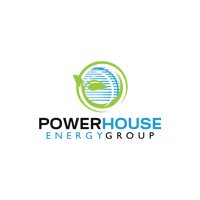Commenting, Keith Allaun, CEO of PowerHouse said: “We are delighted to have signed our first international agreement for DMG®, the world’s first proven hydrogen from waste process. The environmental challenges in both Bulgaria and Romania are well documented and there is clearly a determined approach in both countries to take on the pollution problem. PHE technology provides the ideal solution, particularly now as bus companies have started to replace the aging bus fleets.”
PowerHouse Energy Group plc (LON:PHE), the UK technology company pioneering hydrogen production from waste plastic and end-of-life tyres, announced today its first international distribution agreement for its proprietary DMG® hydrogen from waste (HfW) process targeting the supply into hydrogen bus projects in Bulgaria and Romania. The agreement is summarized as follows:
- Agreement between PowerHouse, Tresoil Biofuels SRL (‘Tresoil’), a leading Energy Project Developer in Romania and Bulgaria and Waste2tricty, PowerHouse’s Projects Development partner.
- Provides a cost-effective turnkey solution through PowerHouse’s partner, Wrightbus, a leading bus manufacturer of zero emission hydrogen buses.
- Covers the supply of PowerHouse’s proprietary technology DMG®, the hydrogen from waste (HfW) process, into hydrogen bus projects in Bulgaria and Romania.
- Tresoil will be responsible for applying for grants, integrating with end users and enabling the establishment of Special Purchase Vehicles’s which will initially be 51% owned by the PHE/W2T relationship and 49% by Tresoil.
Bus operators in Romania and Bulgaria are actively seeking to replace aging fleets of highly polluting public transport buses, with the region encouraged by the EU to deploy low carbon alternatives. Tresoil is a well established company in Bucharest and has been involved in seeking grants for alternative energy projects and is considered a leading specialist in this area.
Powerhouse Energy, Waste2tricity and Tresoil have negotiated a three way binding agreement to seek deployments of hydrogen buses fuelled by PowerHouse’s DMG technology in partnership with Wrightbus, a leading bus manufacturer of zero emission hydrogen buses (See announcement of 20 February 2018). The potential has been identified not only in Bucharest and Sofia, but also in many other cities across these two countries as they seek to comply with EU directives to reduce pollutants and particulates.
This agreement is in line with the Company’s strategy to identify commercially viable opportunities for sales of DMG units, with various EU funding initiatives supporting decarbonising transport including grants for hydrogen bus and potential grants for the capital required to deploy PowerHouse’s DMG system. The virtuous circle of destroying mixed plastics and producing carbon neutral hydrogen and electricity falls into many categories that may be eligible for both grants and soft loans in this region and will support the desire and willingness of the local municipalities to improve the environment for their populations.
PowerHouse, Wrightbus and Tresoil can offer a competing economic solution with an attractive pay back. The distribution agreement provides that PowerHouse has the right to agree and veto the commercial terms proposed to any end user identified via Tresoil
Roger Preston, Managing Director of Tresoil, added: “With the assistance of European development funds, which are specifically destined for hydrogen bus projects, we will be looking to partner with bus operators across all the major cities in both Bulgaria and Romania where there is intense pressure as they seek to comply with EU directives to reduce pollutants and particulates. bring emissions up to European standards.”


